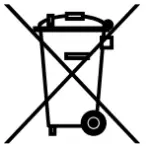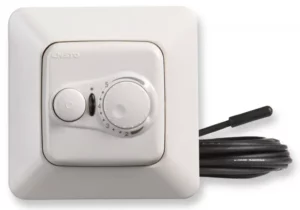
ENSTO ECO10F Floor Thermostat Instruction Manual
Connection diagram
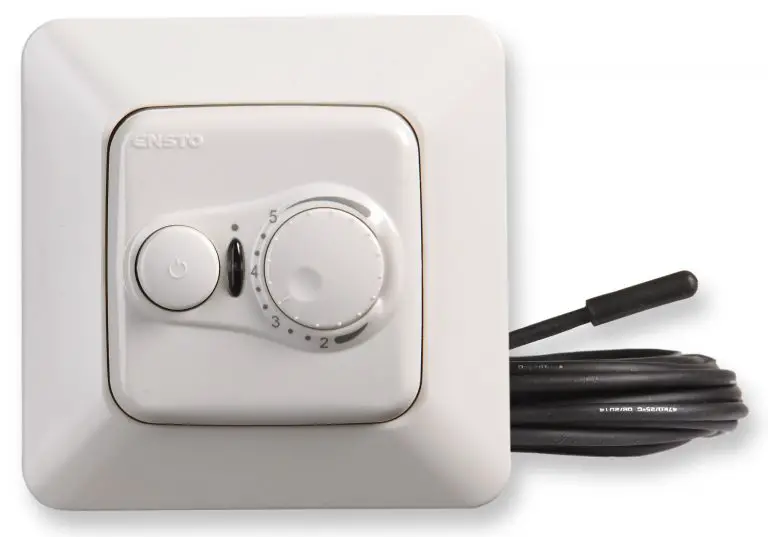
| Table 1 | |
| T / ºC | R / kΩ |
| 5 | 121 |
| 10 | 94 |
| 20 | 59 |
| 30 | 38 |
| 40 | 25 |
| 50 | 17 |
| 60 | 11 |
Connection of wires to the thermostat
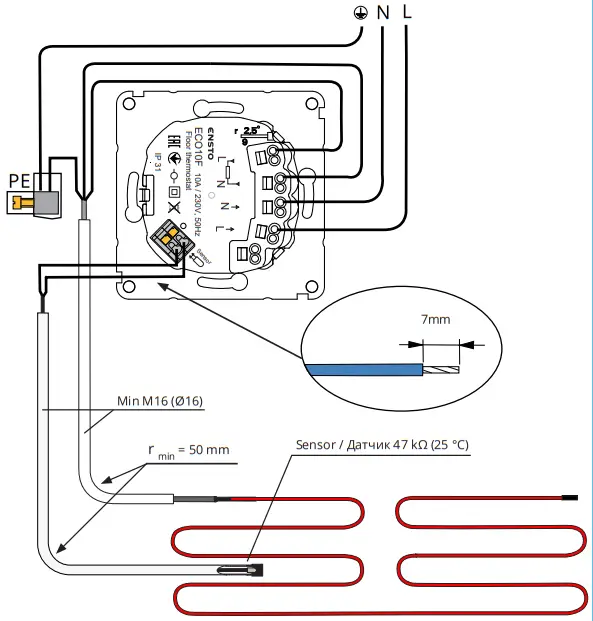
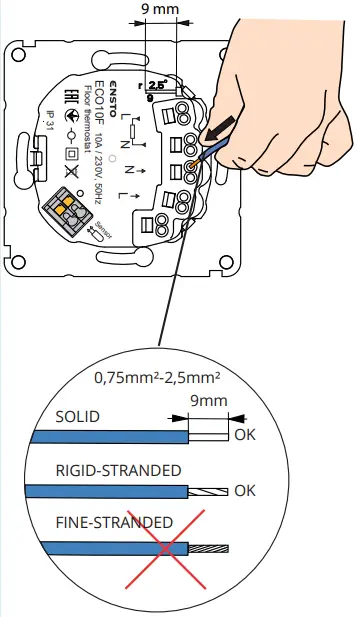
User interface
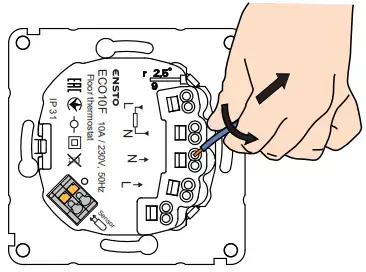
Installation and uninstallation
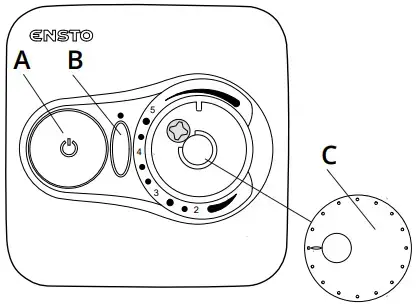
Introduction
ECO10F and ECOINTRO10F floor thermostats are for room-specific control of electric floor heating.
Safety instructions
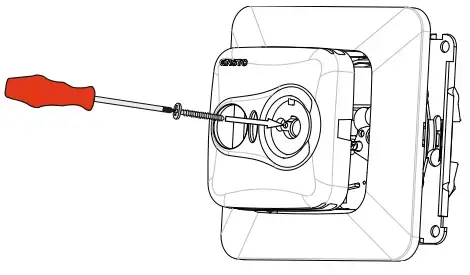 Electrically skilled person
Electrically skilled person
- The installation must only be done by an electrician with the appropriate qualifications.
- Read this manual carefully before starting the installation work.
- Follow the instructions in this manual, and make sure that the installation complies with national safety regulations, installation methods and restrictions.
- The information provided in this manual in no way exempts the installer or user from responsibility to follow all applicable safety regulations.
- This manual is a part of the product and must be stored in a safe location so that it is available for future installation and service.
WARNING
 Danger of electric shock! Risk of fire!
Danger of electric shock! Risk of fire!
- Disconnect the power supply before carrying out any installation or maintenance work on this thermostat and associated components.
- Do not switch on the power supply before the installation work is completed.
- Improper installation can cause personal injury and property damage.
- Do not operate a defect thermostat.
Before installation
- Make sure that all the parts and tools needed for the installation are available.
- Make sure that heating load is equivalent to the thermostat power endurance.
- Measure the insulation resistance and circuit resistance of the heating load controlled by the thermostat.
Installation, figures 1, 2 and 4
- Mount the thermostat as the cover of a 1-component mounting box or as a part of a multiple component instrument panel.
- Place the sensor cable in a dry protective tube between heating cables.
NOTE! Make sure that there is not water in the protective tube. - Connect the earthing wires (PE) to the separate connector.
- Connect the thermostat to the mains and load according to figures 1 and 2.
• Connect the supply conductors. The stripping length is 9 mm.
• Connect the sensor cable to the sensor marked connector. The stripping length is 7 mm.
• The thermostat has spring connectors. Disconnected the conductors from the spring connectors by twisting and pulling at the same time.
• Use a residual circuit breaker according to local installation regulations. - Install the thermostat into the mounting box with screws.
- Install the thermostat lid, cover plate and adjustment knob. Cover the thermostat from potential dust during construction work.
Commissioning and operation, figure 3
- Switch on the heating from the switch A. The signal light B is green when the thermostat is functioning and the light turns red when the load is connected.
- Set the desired floor temperature with the adjustment knob C.
- When the thermostat is functioning normally, you can hear a faint click when the load is switched on and off.
Technical data
| Supply voltage | 230 V -15%, +10%, 50 Hz |
| Switch contact | 2-pole |
| Rated current | 10 A |
| Maximum load | 2300 W |
| Thermostat adjustment range | 10 … 60 °C |
| Operating temperature range | -20 … +30 °C |
|
Signal light B |
green: thermostat on, heating off |
| red: heating on | |
| Floor sensor | NTC, 47 kΩ at 25°C, cable 4 m (extendable to 10 m) |
| Floor sensor resistance values | see page 2, table 1 (the sensor is not connected) |
| Circuit breaker/fuse | max. 16A |
| Power in standby | < 0,5 W |
| Ingress Protection | IP31 |
Thermostat can control an external relay.
Warranty
The warranty period for Ensto ECO thermostats is 2 years from the date of purchase but no longer than 3 years from the date of manufacture. Warranty conditions, see the product card www.ensto.com.
Disposal
 Do not dispose of electrical and electronic devices including their accessories with the household waste.
Do not dispose of electrical and electronic devices including their accessories with the household waste.
- The product’s cardboard packing is suitable for recycling.
- When a heating system is at the end of the life cycle the cables, conduits and electronic components must be disposed of properly according to local recycling guidelines.
